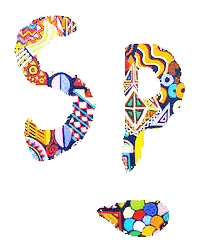Art as a political weapon?
- Stephen Hornsby-Smith

- Jul 20, 2015
- 2 min read
In ‘Our Mutual Friend’ Dickens ruthlessly introduces a bludgeoning political literary weapon in revealing the venal ‘Veneerings’, aptly named as a family buying their way to political power and influence. Likewise in a recent film ‘Layer Cake’, Daniel Craig’s character is drawn into inevitable gangland double-crossing etc.

I believe that sometimes we’re double-crossed by political ‘Art’. Now that assumes that political art is a category. It’s therefore either didactic or posing as art or so diffuse that it is non-recognisable as political art.
Then is there right and left wings of the political spectrum represented or not? Is the right-wing art or left wing art more obvious or not? Do we have to rely on social scientists to explain hidden political sub-texts and then overlook the potential for ‘manipulation’ when ‘made simple’ art for the less educated demographic (soaps, Stallone films, etc) is made part of our cultural diet? Is it assumed that left-wing political art is more creditable because it has no interest in ‘withholding the truth’ because it’s not in power?
It seems to me that there is a huge industry in political art but very little honesty about what it does and doesn’t do. From the ‘Hunger Games’ to ‘Eastenders’ someone is writing a column or paper or thesis about the political motives of Ian or Dot etc. Do we deserve to be treated by moronic behaviour? We are political ‘consumers’, unnatural selectors of our own selfish interests and pet-hates. I’m sure the most lucrative business will be to seem critical but remain entrenching vested interests, or vice versa. Don’t you just hate the inevitable escalation of political conspiracy and counter-political conspiracies?
So why make it into ‘Art’? Conspiracies alone are not art, they are psychological angles to make money and exploit people’s vulnerabilities. Or not?
Instead of political Dr Martins, I hope that my withdrawal from concept art and rejection of AgitProp provides me with an escape from force-feeding art or as a front for any organisation that is coercive. This issue of political agendas attracts the fanatics of those who are both over-rationalising to create an ideological purity and those who are reductionistic. There is no utopia, no guarantee no definitive answer except the one that such immersion into finding something that isn’t there inevitably will make you obsessive and frustrated in people not seeing what you see as self-evident. God would explain it, but any 'Crusades’ should be confined to history, not to contemporary Britain.
Perhaps Reggio’s film 'Koyaanisqatsi’ is both documentorial and a narrative of the self-destructive collapse of spirituality in the world – there is no dialogue, and there is no counter argument included. Significantly then, one has to rely on a film whose raison d’etre about ‘life being out of balance’ is reinforcing a didacticism or at best a subjectivity that it is supposedly at pains to condemn and eradicate.
Contradiction or double standards explain that politics is out of balance, and that political art is about rolling the dice with someone’s principles, and that is too heavy a price to pay. Or not? You decide.









Comments